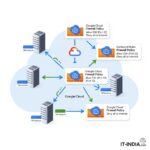Washington, 30 Aug 2025 – In a sweeping rebuke to the trade policies of former President Donald Trump, a federal appeals court ruled late Thursday that sweeping “national security” tariffs imposed on steel and aluminum in 2018 violated U.S. law. The three-judge panel unanimously ordered the Treasury to refund an estimated $6.2 billion in duties that were collected before the levies were quietly rolled back in 2022.
Writing for the U.S. Court of Appeals for the Federal Circuit, Judge Sharon Prost said the Trump administration “misread or ignored” its statutory authority under Section 232 of the Trade Expansion Act. “The statute allows targeted measures, not an open-ended global surcharge,” Prost wrote, noting that the 25 % tariff on steel and 10 % tariff on aluminum applied to close allies such as Canada, the EU and Japan without evidence their shipments threatened national security.
The decision is the latest setback for the legacy of the 45th president, who had hailed the tariffs as a way to revive domestic manufacturing. According to Commerce Department data, imports of primary steel did fall 11 % between 2018 and 2020, but prices surged 38 %, squeezing U.S. automakers and construction firms. A separate Federal Reserve study found that downstream industries shed 77,000 jobs over the same period, offsetting the 31,000 positions added in steel mills and aluminum smelters.
“The arithmetic never worked,” said Monica de Bolle, senior fellow at the Peterson Institute for International Economics. “For every steel job saved, two-and-a-half were lost in sectors that use steel.” The institute estimates that U.S. consumers paid an extra $650,000 per year for each steel-industry job preserved.
Stats:
Thursday’s ruling covers 6,847 separate entry lines of merchandise flagged for extra duties between March 2018 and January 2022. Importers who paid the tariffs can now file for refunds plus 4 % interest, the court said. Small-business importers, which account for 62 % of the claims, are expected to receive an average repayment of $940,000, according to Customs and Border Protection projections released Friday.
Biden’s Take:
The Biden administration, which had continued to defend the tariffs in court, said it was “reviewing next steps.” White House press secretary Karen Jean-Pierre told reporters that “while we disagree with parts of the opinion, the president remains committed to fair trade and to American workers.” Legal experts believe the Justice Department is unlikely to appeal to the Supreme Court, given the unanimous circuit ruling and the political liability of defending a Republican-era policy.
Republican lawmakers offered contrasting reactions. Senator Josh Hawley of Missouri, a steel-state ally of Trump, called the decision “judicial activism,” whereas Senator Rand Paul of Kentucky praised it as “a win for consumers and the Constitution.”

Court’s verdict:
The court opinion also chastised the Commerce Department for failing to provide a 30-day public-comment period before the tariffs took effect. “Procedural shortcuts cannot substitute for reasoned decision-making,” Judge Prost wrote. The rebuke may complicate future White House efforts to invoke national security as a justification for trade restrictions.
Financial markets greeted the news with cautious optimism. Shares of Ford and General Motors—two companies that had lobbied against the tariffs—rose 3.7 % and 2.9 % respectively on Friday morning. The American Iron and Steel Institute, the main industry lobby, warned that the ruling “risks re-opening the floodgates to subsidized foreign metal.”
The refund process will begin on 1 October, the court ordered, and must be completed within 18 months. Customs officials estimate that roughly 1,800 claims will require individual audits because of missing paperwork or valuation disputes. Importers have until 15 December to file amended entry summaries.
US Canada Angle:
For many companies, the ruling is a long-awaited vindication. “We paid $4.8 million in duties on Canadian aluminum that never should have been taxed,” said Lisa Cho, CFO of Wisconsin-based Badger Extrusions. “That money is going straight back into expanding our plant and hiring 30 new workers.”
Advocacy groups are already pressing Congress to rewrite Section 232 to prevent future abuses. A bipartisan bill introduced in July would require Congressional approval for any tariff above 15 %. The measure has 48 co-sponsors but faces an uncertain path in an election year.
As Washington digests the implications, one statistic stands out: according to the U.S. Trade Representative, the total value of steel and aluminum imports subject to the now-illegal tariffs was $47.3 billion—larger than the annual economic output of the state of Vermont.

